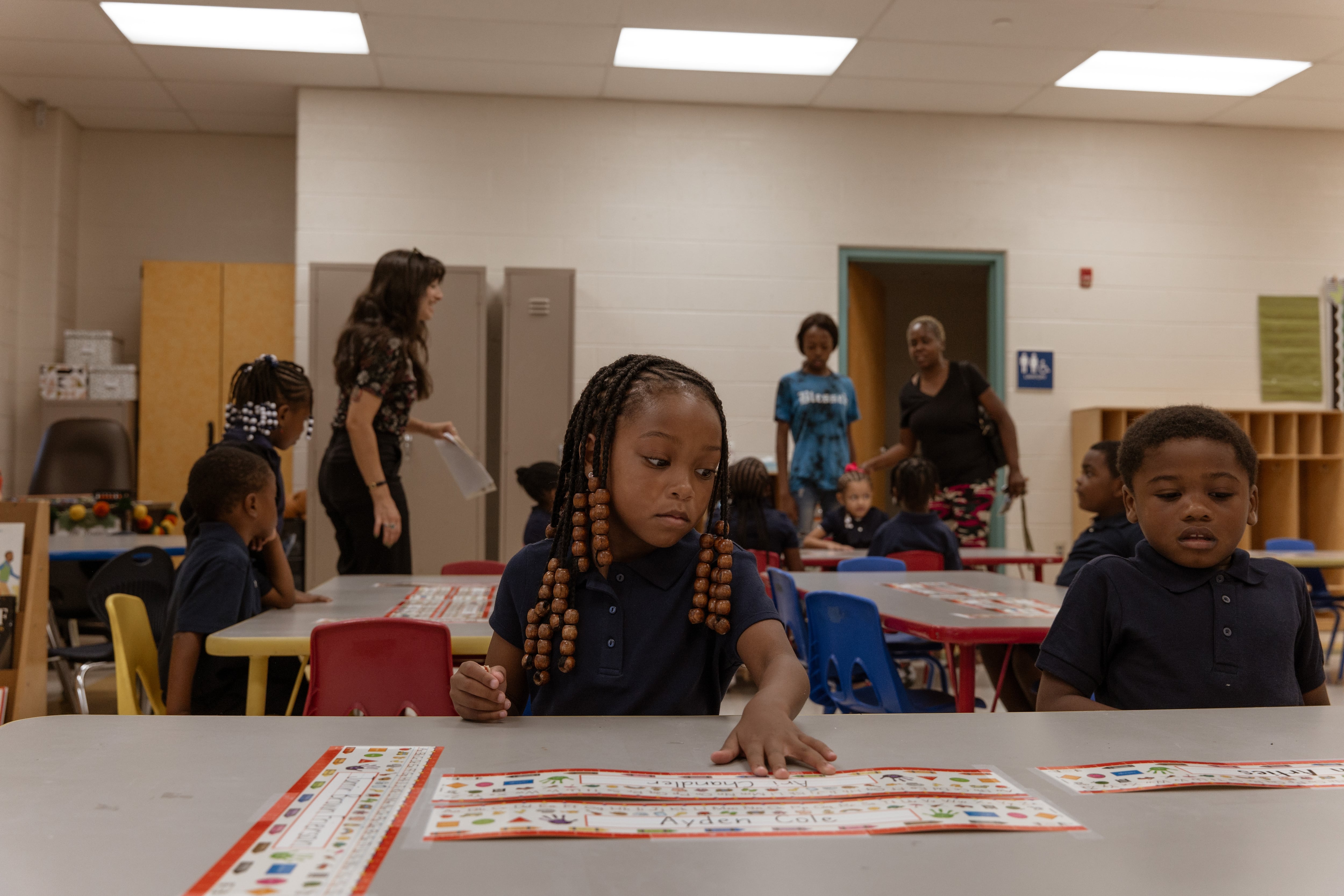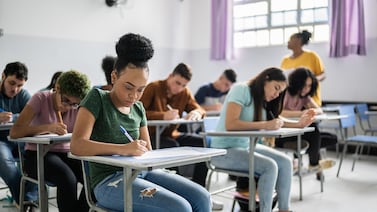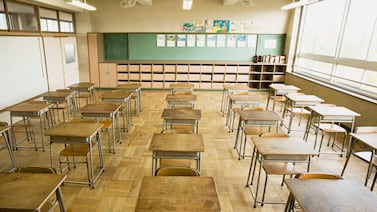Sign up for Chalkbeat Philadelphia’s free newsletter to keep up with the city’s public school system.
One of Philadelphia’s leading education advocacy groups wants the City Council to allocate more money to city public schools than the mayor has recommended in her proposed budget.
In a lengthy report released Wednesday on the state of the city’s children, Children’s First said Philadelphia should devote 58% of property tax revenue to the district, up from the 55% schools get now.
Children First Executive Director Donna Cooper estimated that an increase to 58% would bring in an additional $61 million to the district next year due to the higher percentage, although she said that figure could rise to as much as $98.6 million if expected revenue growth is included.
In her budget proposal, Mayor Cherelle Parker says the school district should get 56% of that tax revenue.
While that and other parts of Parker’s proposal would add $24 million to the district’s coffers next year, it wouldn’t necessarily be enough to stave off potential cuts due to the end of federal COVID relief funds. District officials are forecasting a $400 million shortfall in fiscal 2025 without additional revenue. The district’s operating budget this year is $4.5 billion.
“Students need much more and they deserve much more,” said parent advocate Jazmin Banks at a press briefing on Children First’s report. “We cannot afford any cuts to the school district’s budget.”
Parker herself proposed the 58% figure during the mayoral campaign. In her budget address, she also called for year-round school, which the district plans to pilot in 20 schools in 2025 and will come with added costs, although Parker did not provide a price tag.
In an interview after the Children First event, City Council President Kenyatta Johnson said increasing the district’s share of city property tax revenue to 58% is not off the table as budget negotiations continue. But he emphasized that council members must “protect the fiscal health of the city” while doing what it can to support the school district.
Johnson also said he thinks “the onus is on the state” to make sure Philadelphia’s schools are adequately funded. He cited the 2023 Commonwealth Court ruling that Pennsylvania’s school funding system is unconstitutional and shortchanges Philadelphia by hundreds of millions of dollars annually.
Gov. Josh Shapiro’s proposed budget includes $1.1 billion in additional funding for education, of which about $300 million would come to Philadelphia.
The Children First report also called for the city to invest in creating 250 more seats in its early childhood education program, PHLPreK. It also said the city should increase its investment in after-school programs and other out-of-school-time activities to keep students safe.
Without additional funding, 8,000 seats in out-of-school-time programs may be lost with the end of federal pandemic aid. Keeping those activities at recreation centers and other venues would cost $8.8 million.
Several parents and grandparents spoke of the need for the city and the district to more proactively address increasing violence, primarily through additional support for diversion programs to reduce the number of young people who wind up in juvenile detention centers.
The report noted that in 2023, 243 young people in Philadelphia under the age of 19 were injured by gun violence, and 31 of them died.
“That number should be zero,” said Geanna Williams-Davis, who has eight grandchildren in the city. “We have to stop violence in the city, period. That means investing in young people, making sure kids have enriching activities to do after school and over the summer and on weekends as well. Too many of our kids are dying unnecessarily.”
Dale Mezzacappa is a senior writer for Chalkbeat Philadelphia, where she covers K-12 schools and early childhood education in Philadelphia. Contact Dale at dmezzacappa@chalkbeat.org.







